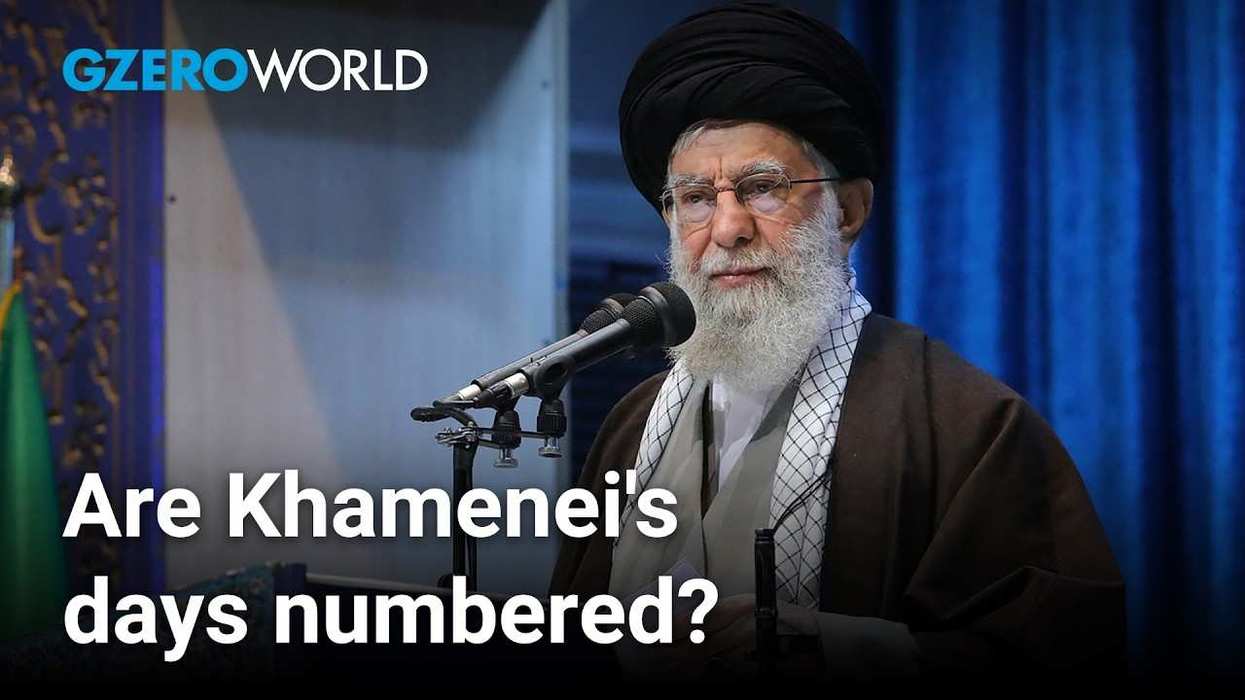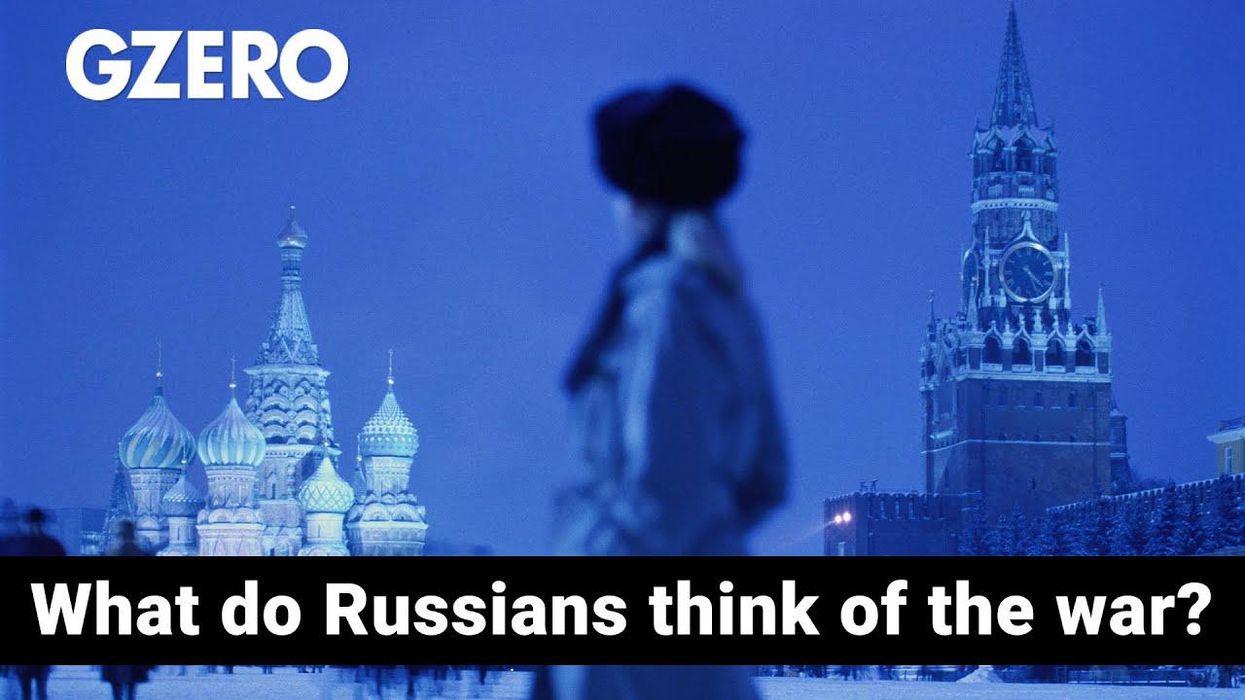I get a lot of questions these days from people feeling worried, disturbed, even overwhelmed about the state of politics in the United States. Recently, I received a particularly heartfelt request for guidance from a concerned citizen that demanded more than a few honest but incomplete thoughts typed quickly in between meetings. I thought I'd use today's column to share her message (with her name redacted) and my full response, in the hope that you might find it useful, too.
* * *
From: [name redacted]
To: me
Not sure you will read this through…
The bottom line up front: I’m reaching out, not for reassurance, but for direction. Are there ways of engaging that you believe actually make a difference – paths for ordinary people like me who refuse to give up – I would be deeply grateful if you’d share them.
I’ve been a follower of yours since my introduction to you via Preet’s podcast. I just finished How to Stand Up to a Dictator by Maria Ressa. It lit a fire in me but also leaves me overwhelmed. I feel pulled to do more, but don’t know how beyond what I am currently doing: I make weekly calls through 5calls (dot) org, I write, I show up to local protests, but it feels like trying to hold back a tidal wave with a teaspoon.
How does a layperson create change? I’m not a lawyer or political expert, but a mom and the wife of a now-retired Lt. Colonel. For 24 years, I stood by my husband’s side, believing deeply in the idea that the sacrifices our family was making were for the greater good – that our country, for all its flaws, stood for freedom, truth, and accountability. That there was honor in this calling. But over the last eight years, and especially these past nine months, I’ve felt that foundation crumble. The freedoms I once believed were sacred are being chipped away, quietly and relentlessly.
I know you’re not an oracle. But I view you as someone who connects the dots with clarity, empathy, and integrity. Thank you for the work you do. You make people like me feel less alone, and that’s no small thing in times like these. I will take any guidance you can provide.
Respectfully,
[name redacted]
*
From: me
To: [name redacted]
Dear [name redacted],
I read every word. I wish I had a more satisfying answer for you, but the truth is I get messages like yours regularly – from people who've done everything they were told would matter, who show up, call, write, protest, and still feel like they're bailing out the ocean with a spoon. You're not wrong to feel that way. The foundations are shifting beneath us, and the tools we were told would protect democracy – engagement, institutions, information – are being undermined in real time.
Here's what I know: you're already doing more than most. The calls, the protests in Gaetz country, the refusal to look away – all that matters. Not because it guarantees any policy change, but because it keeps the muscle memory of citizenship alive. When people stop showing up, stop calling, stop caring, that's when the tidal wave actually wins.
But let's be honest, you are swimming against the current. We're living through a transformation in how power works. Grassroots civic engagement – the kind you're doing – is eroding not just because of political polarization, but because the systems that used to amplify individual voices are being replaced by algorithms that consolidate power in fewer hands. The social media business model is fundamentally incompatible with a healthy civil society – it welcomes bots, promotes extremism, and spreads disinformation precisely because those things maximize engagement. You're not just fighting bad policy; you're fighting a system designed to maximize division for profit. Traditional information networks are collapsing. The "messy middle" of democratic institutions is under sustained attack. And younger Americans especially are feeling a disenchantment that's hard to overstate.
So, what do you do when the infrastructure itself is compromised?
First, remember that erosion is uneven. Not all American institutions are decaying at the same rate. Some things still work extremely well: contract enforcement, capital markets, innovation. The judiciary remains independent in its decision-making. State and local governance remains mostly technocratic and independent of Washington. The professional military is still firmly loyal to country over leader. Your husband's service wasn't for nothing. That culture, that commitment to something bigger than partisan politics – it's one of the things that's holding. Imperfectly, but holding.
Second, stay local. National politics feels like screaming into the void because, increasingly, it is. But local politics – school boards, city councils, state races – still have leverage points where individual voices matter disproportionately. It's less glamorous, but it's where you can actually see cause and effect. And it's where the most consequential fights over voting access, education, and civil society are happening right now.
Third, build real community. Not just online networks, but face-to-face relationships with people who share your values – and people who don't. The coming years are going to require resilience, and that comes from knowing your neighbors, organizing locally, and creating mutual support systems that don't depend on institutions you can't control.
Fourth, focus on the 10%. Not every outrage requires your energy. In an environment where everything is breaking news, where uncertainty itself has become the dominant condition, the most important skill is figuring out which fights matter for outcomes. Don't let the noise exhaust you. Pick your battles.
Finally – and this is hardest – accept that you can't control outcomes, only your response. You stood by your husband for 24 years because you believed in something bigger than yourselves. That belief was real and justified. The question now isn't whether you can stop the tidal wave alone – you can't. The question is whether you're willing to keep standing for what you believe in even when the odds look terrible. Because the alternative – cynicism, withdrawal, giving up – guarantees the outcome you're trying to prevent.
That's probably not the roadmap you were hoping for. There's no secret lever to pull, no hidden strategy that makes this easier. The uncomfortable reality is that we're in a period where the old rules don't apply, and the new rules haven't been written yet. Closed systems are getting stronger than open ones everywhere you look. Power is consolidating in ever fewer hands. The trajectory is admittedly worrying.
But here's the thing about history: it isn't deterministic. Trajectories can shift. And they shift because people like you – people who refuse to stop showing up, even in the deep red parts of Florida – keep the possibility of something better alive long enough for an opening to appear.
You're not alone. There are millions of people feeling exactly what you're feeling right now. The work is finding each other, supporting one another, and staying in the fight even when it feels hopeless.
Thank you for what you're doing. Thank you for not giving up. And thank you for writing.
Ian
* * *
This is not meant to be a partisan screed. The United States has a dysfunctional and unrepresentative political system that's become delegitimized in the eyes of its citizens in a way the country hasn't experienced since the Civil War. The stakes feel existential, but Americans across the spectrum feel powerless to change the system. Democrats and Republicans alike increasingly see their domestic political opponents as their principal adversaries. They only disagree on who those adversaries are. Many now believe non-legal means are required to fix things, with a fringe but vocal minority seeing violence as justified.
President Trump is both a symptom and a beneficiary of this reality, but he didn’t cause it. Widespread disenchantment with a system that has been deteriorating (and has been allowed to deteriorate) for decades opened the door to the revolutionary effort now underway in Washington to fundamentally upend the domestic balance of power. The outcome of that revolution will shape American democracy – and global geopolitics – for a generation.
I'll be digging into this and much more in my State of the World speech at our annual GZERO Summit in Tokyo next week. Watch it live at https://www.gzeromedia.com/stateoftheworld on Monday, October 20 at 8:30 pm ET.


















